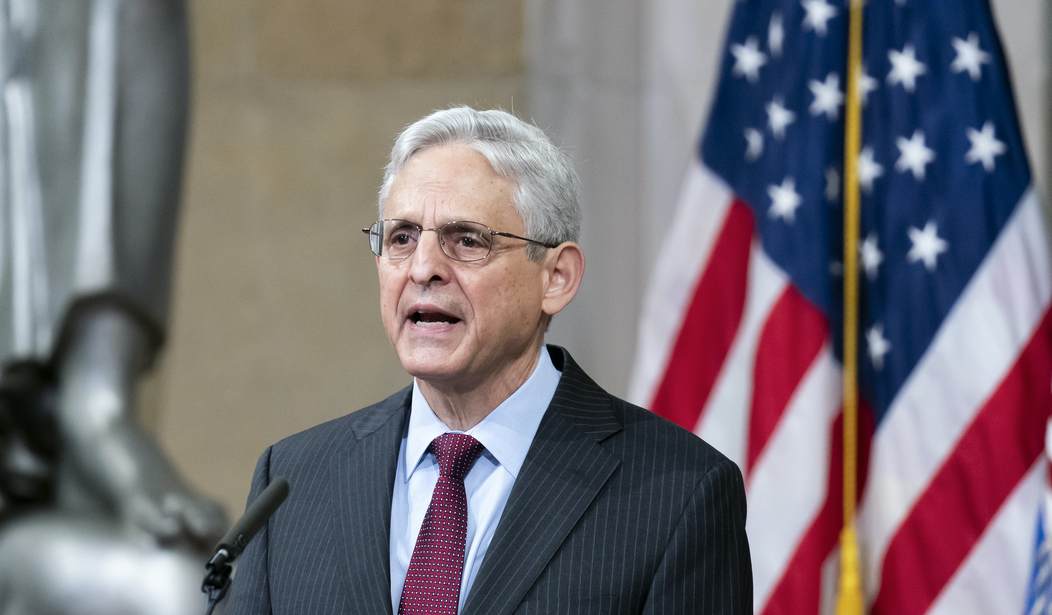On Thursday the Department of Justice (DOJ) announced it is suing the state of Texas and Texas Secretary of State John B. Scott over an election integrity law that Gov. Greg Abbott (R-TX) signed in September, as Joseph Choi reported for The Hill. Democratic members of the state legislature fled the state for Washington, D.C. in protest of the legislation, in violation of state law, though it ultimately was still signed by Abbott.
Choi highlighted how part of the law "prohibits election officials from sending unsolicited applications for a mail-in ballots on the risk of imprisonment and rolls back voter accommodations that were put into place due to the pandemic."
As Reagan wrote at the time of the bill being signed into law, it "ramps up voter identification requirements for in-person and mail-in voting, bans unsolicited mail-in ballots from being sent out, implements more voter roll oversight, and empowers poll watchers, among other provisions."
She also included a tweet from the governor who likewise underscored provisions of the legislation.
Election integrity is now LAW in Texas.
— Greg Abbott (@GregAbbott_TX) September 7, 2021
This law:
?? Ensures every eligible voter gets to vote
?? Adds more hours to vote
?? Makes it harder for fraudulent votes to be cast
?? Makes ballot harvesting a 3rd degree felony
Bottom line: it's easier to vote & harder to cheat. pic.twitter.com/p9IDQg95IK
A Thursday press release from the DOJ quotes Attorney General Merrick Garland and Assistant Attorney General Kristen Clarke for the Justice Department’s Civil Rights Division about the suit:
“Our democracy depends on the right of eligible voters to cast a ballot and to have that ballot counted,” said Attorney General Merrick B. Garland. “The Justice Department will continue to use all the authorities at its disposal to protect this fundamental pillar of our society.”
“The Civil Rights Division is committed to protecting the fundamental right to vote for all Americans,” said Assistant Attorney General Kristen Clarke for the Justice Department’s Civil Rights Division. “Laws that impair eligible citizens’ access to the ballot box have no place in our democracy. Texas Senate Bill 1’s restrictions on voter assistance at the polls and on which absentee ballots cast by eligible voters can be accepted by election officials are unlawful and indefensible.”
Recommended
The department's concerns with the Texas law, according to the press release, amount to how the law is unfair to those with disabilities or who are illiterate. The DOJ also claims it is in violation of the Civil Rights Act of 1964:
The United States’ complaint contends that Senate Bill 1 violates Section 208 of the Voting Rights Act by improperly restricting what assistance in the polling booth voters who have a disability or are unable to read or write can receive. The complaint alleges that Senate Bill 1 harms those voters by barring their assistors from providing necessary help, including answering basic questions, responding to requests to clarify ballot translations or confirming that voters with visual impairments have marked a ballot as intended. The United States’ complaint also contends that Senate Bill 1 violates Section 101 of the Civil Rights Act of 1964 by requiring rejection of mail ballots and mail ballot request forms because of certain paperwork errors or omissions that are not material to establishing a voter’s eligibility to cast a ballot. The complaint asks the court to prohibit Texas from enforcing these requirements.
Gov. Abbott responded with a tweet saying "Bring it," as he also once more highlighted that the law makes it "easier to vote but harder to cheat."
Bring it.
— Greg Abbott (@GregAbbott_TX) November 4, 2021
The Texas election integrity law is legal.
It INCREASES hours to vote.
It does restrict illegal mail ballot voting. Only those who qualify can vote by mail.
It also makes ballot harvesting a felony.
In Texas it is easier to vote but harder to cheat. https://t.co/VYTyqP6I0Q
Jason Snead, executive director of Honest Elections Project Action provided a statement to Townhall about the lawsuit.
"Once again the Biden Administration is targeting a reasonable, commonsense election law that makes it easier to vote and harder to cheat. SB1 improved the election system in the state of Texas through popular, commonsense reforms. Now, the Biden Administration is attacking measures intended to protect voters’ ballots, including a new voter ID law that simply asks voters to write the number from their driver’s license or free state ID on a mail ballot. Polling shows that Americans embrace this reform by wide margins, making this lawsuit only the latest demonstration of just how out of touch the left is," Snead said.
This DOJ has been particularly active in suing conservative states, Texas especially. Other lawsuits against the state have included over its abortion law that bans most abortions once a fetal heartbeat is detected, at around six weeks, and over trying to protect Texans from COVID positive immigrants. The department also announced in June it was suing Georgia for its own election integrity law that Gov. Brian Kemp (R-GA) signed in March, though a federal judge upheld key provisions.

























Join the conversation as a VIP Member